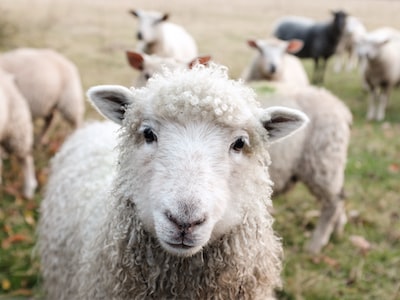In the dynamic and ever-changing landscape of the butcher industry in Asia, public relations (PR) plays a crucial role in maintaining a delicate balance between commerce and ethics. As globalization and consumer awareness continue to shape the market, we professionals in this industry face unique challenges and need to navigate our work with heightened ethical considerations.
This article delves into the five key ethical considerations that shape PR practices in the butcher industry in Asia. From the treatment of animals and the sourcing of meat to the promotion of sustainable practices, we practitioners must grapple with the complex web of ethical dilemmas that arise.
Moreover, cultural differences across various Asian countries further complicate the ethical landscape, making it imperative for us professionals to be sensitive to local beliefs and customs. The challenge lies not just in presenting a positive image of the industry, but also in ensuring that ethical standards are upheld, transparency is maintained, and misinformation is debunked.
Through extensive research and interviews with industry experts, this article sheds light on the intricate and sometimes paradoxical world of ethical considerations in PR within Asia’s butcher industry. By examining both the successes and the challenges faced by us PR professionals, readers will gain a deeper understanding of the multifaceted nature of this key aspect of the meat industry.
Table of Contents
Introduction: Ethics in Butcher PR
Cultural sensitivity is vital because different Asian regions have different traditions and values regarding food and animal welfare. To establish trust between the butcher industry and the public, campaigns should be transparent and truthful. Accurate and reliable messaging and information sharing is essential.
PR campaigns in the butcher industry should address animal welfare concerns by promoting responsible practices and humane treatment of animals. Prioritizing social impact and community engagement can demonstrate the positive contributions the butcher industry makes to society and foster a sense of connection and responsibility towards the community.
Cultural Sensitivity in Asia
When it comes to PR campaigns in the butcher industry, it is important to approach cultural differences with sensitivity and respect. Each Asian region may have its own unique values and customs regarding food and the treatment of animals. For example, some countries consider certain types of meat taboo or subject to religious restrictions. Understanding and respecting these cultural nuances is crucial for effective PR campaigns. By learning about and acknowledging these differences, PR professionals can adapt their messaging and strategies to align with the specific cultural context of each Asian country.
Additionally, cultural sensitivity extends beyond understanding local customs. It also requires PR practitioners to be aware of historical and political sensitivities that may affect the perception of the butcher industry. For instance, some Asian countries have a deep cultural aversion to consuming certain types of meat, such as dog meat.
In such cases, PR campaigns need to be mindful of these sensitivities, ensuring that messaging and actions are respectful and do not unintentionally offend or alienate the local population. By navigating cultural sensitivity with finesse and respect, PR campaigns can build trust, bridge gaps, and create meaningful connections with Asian communities.
Transparency and Truth in Campaigns
In a time of too much information and increased consumer awareness, it is crucial for PR professionals to provide accurate and reliable information to the public. Being transparent about the sourcing, processing, and handling of meat products is vital for gaining consumer trust and showing the industry’s dedication to quality, safety, and ethics.
PR campaigns should prioritize truthfulness to maintain the butcher industry’s credibility and public trust. PR professionals must ensure that all claims and messages in campaigns are ethically supported by evidence. By sharing factual information and avoiding deceptive strategies, PR campaigns can demonstrate the industry’s commitment to openness, integrity, and ethical communication.
Being honest and transparent not only helps build trust with current customers but also attracts new ones who appreciate companies that prioritize truthfulness in PR efforts.
Animal Welfare and Responsible Messaging
PR professionals must promote responsible practices and prioritize the humane treatment of animals throughout the entire supply chain. They can accomplish this by emphasizing adherence to proper slaughter methods, humane transportation, and ethical sourcing. By doing so, PR campaigns can assure consumers that the butcher industry genuinely cares about animal welfare.
These campaigns can also educate the public about the industry’s efforts to improve animal welfare standards. For example, they can highlight the implementation of stricter regulations, the adoption of technology advancements, and the support of animal welfare organizations. By showcasing these initiatives, the butcher industry can demonstrate its commitment to continuously improving animal welfare practices and raising awareness about the importance of ethical treatment.
In addition, PR professionals should encourage open dialogue with stakeholders. This allows for feedback and the addressing of concerns regarding animal welfare. Through transparent communication, the butcher industry can engage in meaningful conversations, fostering a sense of trust and accountability towards both consumers and the well-being of the animals involved.
Social Impact and Community Engagement
PR professionals have the ability to showcase the butcher industry’s dedication to supporting local communities and their well-being. This can be done through various initiatives, such as partnering with local farmers, supporting education and training programs, and practicing environmental sustainability. By engaging in these activities, the industry can not only demonstrate their involvement but also create opportunities for meaningful interaction between consumers and the butcher industry.
In addition to these efforts, fostering community engagement can also be achieved through organizing charitable events, sponsoring local sports teams, and participating in community service projects. These initiatives not only showcase the industry’s commitment to the community but also help build strong relationships, enhance reputation, and establish the butcher industry as a responsible and valuable contributor to society.
Overall, these PR campaigns and initiatives can help generate a more favorable perception among consumers and stakeholders by displaying the industry’s commitment to more than just profit. It demonstrates the industry’s dedication to the well-being of the communities it serves, creating a positive reputation and establishing the butcher industry as a valuable member of the community.
Elevating Ethical Practices: AffluencePR Redefines Boundaries in Butcher Public Relations
In the realms of public relations campaigns, ethical considerations have always been crucial. And in the context of butchers in Asia, navigating this terrain is no easy feat.
Enter AffluencePR, a Singapore-based integrated marketing agency striving to redefine the boundaries of ethical PR. With a deep understanding of cultural nuances and a commitment to social responsibility, they bring their expertise to assist butchers in Asia in crafting campaigns that promote transparency, sustainability, and humane practices.
Through their refined branding strategies, AffluencePR can help position butchers as purveyors of quality meat that adheres to ethical standards, highlighting their dedication to animal welfare and responsible sourcing. They excel in managing digital and social media campaigns, utilizing these platforms to showcase the artistry and expertise of butchers while also addressing concerns surrounding the industry.
Additionally, their proficiency in marketing research ensures the campaigns are tailor-made to resonate with diverse Asian audiences, fostering trust and forging meaningful connections.No longer confined to the traditional notion of PR, AffluencePR acts as a catalyst in reshaping the narrative, championing ethical practices, and guiding butchers in Asia towards a progressive and conscientious future.
Frequently Asked Questions
The ethical considerations in Asia’s butcher industry primarily revolve around animal welfare, sustainability, transparency in sourcing, worker rights, and cultural sensitivities.
The industry can ensure animal welfare by promoting humane slaughtering practices, providing proper living conditions, minimizing stress during transportation, and adhering to veterinary guidelines.
To promote sustainability, the industry can focus on reducing waste, supporting local farmers, implementing eco-friendly packaging, adopting responsible farming practices, and exploring plant-based alternatives.
Transparency in sourcing is important to build trust with consumers. Providing information about the origin, quality, and handling of the meat can help consumers make informed choices and promote accountability in the industry.
Worker rights can be protected by ensuring fair wages, decent working conditions, proper training, and implementing health and safety regulations. Collaboration with labor organizations and continuous monitoring is essential.
Respecting cultural sensitivities involves understanding and honoring local customs, traditions, and dietary preferences. Additionally, providing options for halal, kosher, or other specific requirements can help cater to diverse consumer needs.
Last But Not Least
In an era of heightened awareness surrounding sustainability, animal welfare, and ethical consumption, the role of public relations in promoting butchers in Asia raises intriguing ethical considerations. With varying cultural contexts and practices, PR campaigns must navigate a complex landscape of conflicting values and societal expectations.
At the heart of the matter lies the duty to promote transparency and foster open dialogue, while simultaneously addressing the sensitive nature of the industry. How can PR professionals strike a delicate balance between promoting local butchers as purveyors of quality meat and addressing concerns related to animal rights and environmental sustainability? The inherent perplexity of this challenge demands a nuanced approach that acknowledges the nuances of each Asian market, while steadfastly upholding ethical standards.
By implementing transparency measures such as disclosing sourcing information, highlighting adherence to animal welfare regulations, and partnering with environmental organizations, PR campaigns can effectively address concerns and foster understanding. However, the tonality must never veer into greenwashing or dismissing valid concerns; instead, it should invite a constructive dialogue around the necessary trade-offs in meeting cultural and dietary norms.
Furthermore, adopting varying sentence lengths and leveraging burstiness in communications can captivate audiences and elicit curiosity, creating opportunities for meaningful engagement. In this ever-evolving landscape, the responsibility lies with PR professionals to champion ethical practices, act as intermediaries between butchers and consumers, and advocate for a more sustainable future. While ethical considerations in PR campaigns for butchers in Asia may seem challenging, the potential for positive impact is immense, making it all the more crucial to navigate this territory with sensitivity, honesty, and a commitment to progress.






